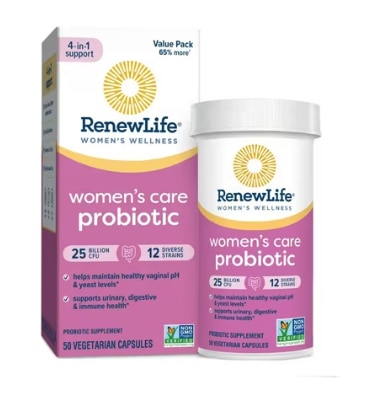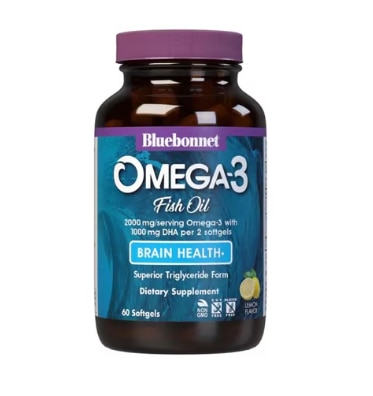It’s certainly no secret that the vitamin and supplement industry has positively exploded in popularity. To date, nearly three-quarters of U.S. adults take a dietary supplement, while the global market has skyrocketed to $31.93 billion—a number that’s only expected to grow.
For a good reason. There’s no doubt that piling your plate with wholesome, nutritious eats is the savviest way to ensure you obtain the nutrients you need. Life, however, doesn’t just get busy: Even the most health-conscious among us may fall short in getting the full range of vitamins and minerals we require.
Whether you’re weighing the idea of starting a supplement routine or hoping to maximize your current regime, here’s how to take your vitamins in the right order (and why timing is essential).
The Best Time to Take Vitamins & Supplements
Multivitamins
Peer into anyone’s medicine cabinet and chances are, you’ll find a multivitamin. As the most popular dietary supplement in the country, they’re widely deemed a surefire method for obtaining the most vital nutrients necessary for wellness.
First introduced in the 20th century, multivitamins typically boast 100% of the Daily Value (DV) of at least two-thirds of the vitamins one needs. The particular components of multivitamins vary by brand, but generally feature water-soluble vitamins (like thiamine and vitamin B12), fat-soluble vitamins (such as vitamin D), and key minerals that include selenium and zinc.
We’re only now beginning to unlock the power of multivitamins. That said, they may organically support healthier pregnancies and nurture eye health.†
Take it…
At the start of the day with your morning meal.
Why?
Your body absorbs several vitamins and minerals best with food; plus, taking one on an empty belly may cause an upset stomach.
Iron
Iron is a key ingredient in your ability to carry oxygen throughout your body. If you have periods, you may need to stock up on iron since you lose blood every month.
Iron has been linked to a host of potential perks; namely, the mineral may support:
- Muscle metabolism†
- Healthy connective tissues†
- Hormonal balance†
- Cellular function†
Take it…
Upon rising in the morning and, if it aligns with your diet, with a glass of orange juice: Some research indicates that the vitamin C in OJ can boost iron’s absorption four fold. Always take iron with food.
Magnesium
Naturally found in a variety of foods—such as spinach, pumpkin seeds, peanut butter, and edamame—the magical mineral plays a part in more than 300 biochemical reactions in the body, including nerve function, heart rate, muscle contraction and protein synthesis.†
As such, the potential benefits of magnesium are legion. It may nurture:
- Energy production†
- Bone health (particularly in post-menopausal and older women)†
- Proper blood sugar regulation†
- Cardiovascular health†
Take it…
Fifteen minutes before you nestle under the covers: One of magnesium’s biggest claims to fame is its potential capacity to provide calm and promote sleep.
Vitamin D
Vitamin D has been in the limelight since the 1930s, a decade after scientists discovered that calciferol (as it’s also called) could help with rickets. Today, a number of foods are fortified with vitamin D, which your body needs to absorb calcium.†
And yet, vitamin D isn’t just vital to bone health. It may also organically nourish immune health, brain activity and muscle function.†
Take it…
With your mid-afternoon snack. Vitamin acts as a fat-soluble vitamin, which means it must be taken with fat for appropriate absorption.
Pop a supplement along with a handful of nuts, a dish of olives or a cup of full-fat yogurt, and follow it with a calcium supplement (if it’s in your current or planned routine). Happen to be away at work or school and don’t want to bring your supplements along? One study discovered that taking vitamin D with your largest meal of the day (usually dinner) may enhance absorption.†
Vitamin B12
Found in animal products including fish, eggs, meat, dairy and chicken: Plenty of foods abound with vitamin B12—a nutrient that’s central to:
- Healthy nerve cells†
- DNA production†
Additional data demonstrates that vitamin B12 may also support vision, healthy stress levels and, what we all arguably want more of, energy.†
Take it…
With breakfast or your mid-morning snack. Vitamin B12 may function as a water-soluble vitamin, but it’s best absorbed when food is present. Further, vitamin B12 may prompt wakefulness in some people, so it’s best taken long before nightfall. A quick note here, though: Be sure to take your vitamin C (if it’s on your list) two hours before or after taking vitamin B12: the former can interrupt your body’s ability to use vitamin B12 effectively.†
Omega 3s
The benefits of omega 3s are legion. Not only do they have the potential to promote heart health, but some research also points to its capacity to encourage cognitive wellness. They may also contribute to a brighter frame of mind and positively impact joint comfort and flexibility.†
Omega 3s are naturally present in several foods, primarily:
- Seafood, such as salmon, herring, mackerel, sardines, trout, and shrimp
- Flaxseeds
- Chia seeds
- English walnuts
And yet, some people may not obtain adequate omega 3s from their diets—particularly those who don’t (or can’t) eat fish and nuts. In this case, a smartly-formulated supplement, such as Vitacost Omega-3s, might be just right.
Take it..
With breakfast, lunch or dinner: Research shows that people may absorb Omega 3s more effectively when it’s taken with a meal that contains dietary fat, such as olive oil, avocado, scrambled eggs or a tuna sandwich. Other fat-soluble vitamins that ought to be consumed with a meal include:
- Vitamin A
- Vitamin K
- Vitamin E
Probiotics
Interest in the gut microbiome has gone from niche to mainstream.
As it should: A growing body of research illustrates that a balanced intestinal ecosystem is fundamental to a wealth of healthy bodily functions, including:
- Metabolism†
- Appetite†
- Weight management†
- Mental well-being and mood†
Additionally, the health of your gut microbiome may directly affect your resilience to stress.
Probiotics work towards restoring an imbalanced gut microbiome, whether it’s been impacted by antibiotics, a less-than-stellar diet or the use of artificial sweeteners.†
How? They help improve the ratio between good and bad microbes.†
Search for a probiotic made by a quality manufacturer and fill your diet with fermented eats like yogurt, kefir, sauerkraut, kimchi and pickles.
Take it…
Approximately 30 minutes prior to sitting down for a meal: Older research suggests that probiotics may work best when they’re consumed with a meal or right before one.†
Above all? Remember to obtain your healthcare provider’s express approval before jumpstarting a new supplement—and to practice consistency. It is, after all, one of the keys to wellness, period.
†These statements have not been approved by the Food and Drug Administration. These products are not intended to diagnose, treat, cure or prevent disease.




